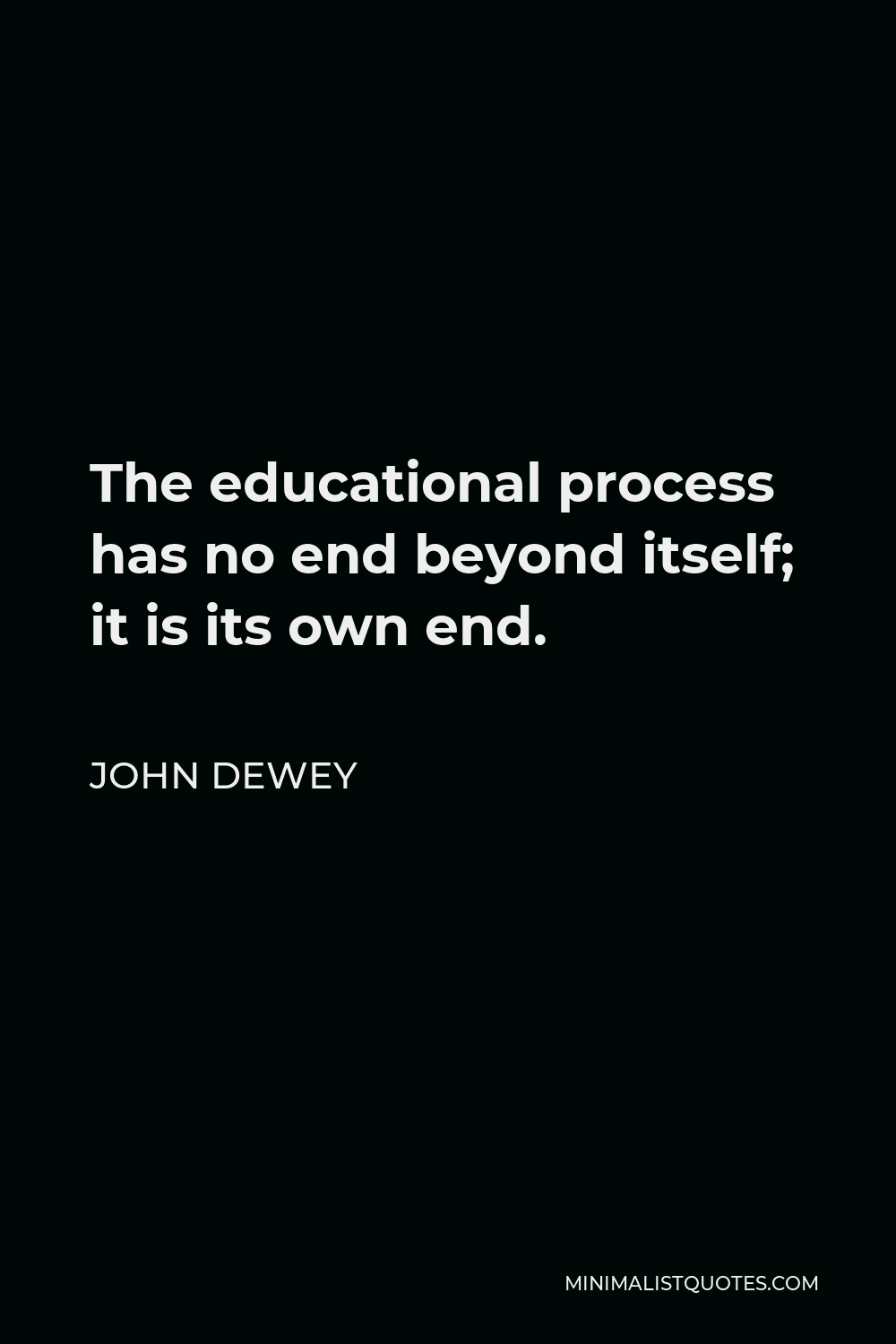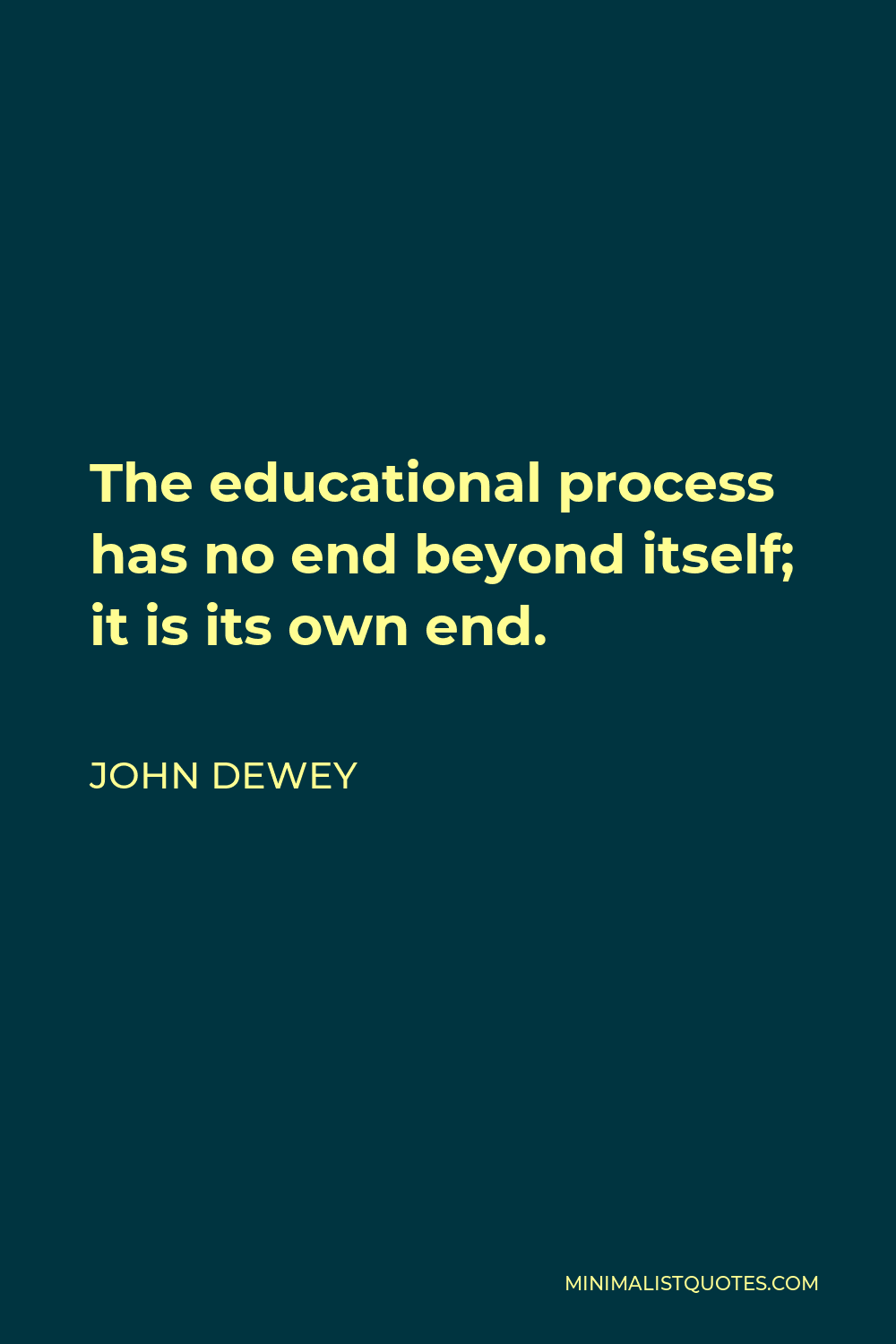Like the soil, mind is fertilized while it lies fallow, until a new burst of bloom ensues.
JOHN DEWEYThe educational process has no end beyond itself; it is its own end.
More John Dewey Quotes
-







-







The path of least resistance and least trouble is a mental rut already made. It requires troublesome work to undertake the alteration of old beliefs.
JOHN DEWEY -





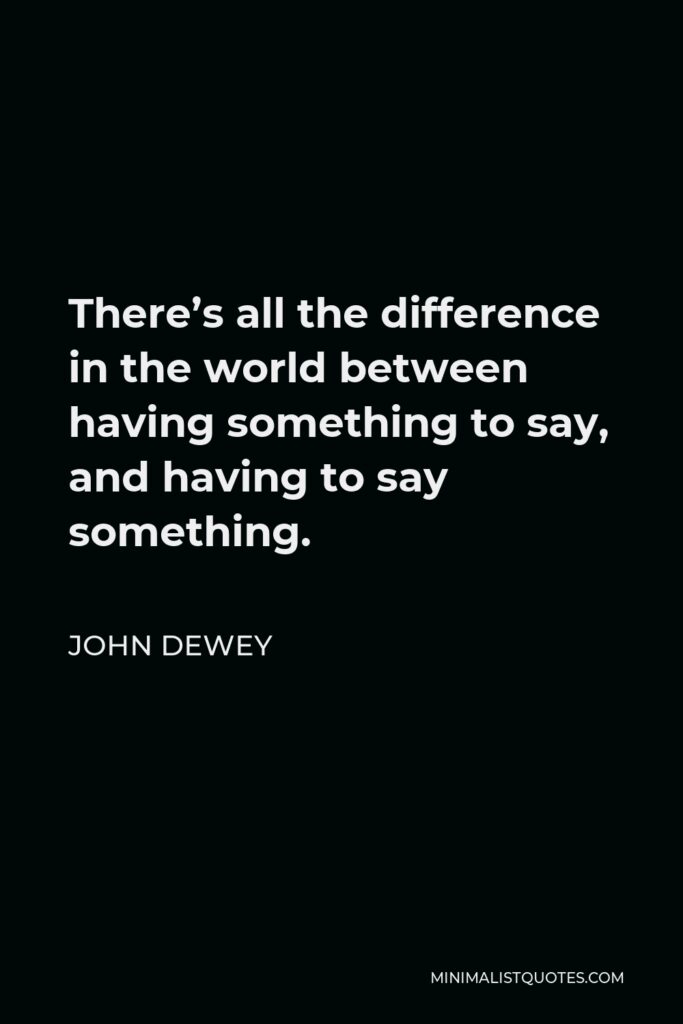

There’s all the difference in the world between having something to say, and having to say something.
JOHN DEWEY -







The only way to abolish war is to make peace seem heroic.
JOHN DEWEY -





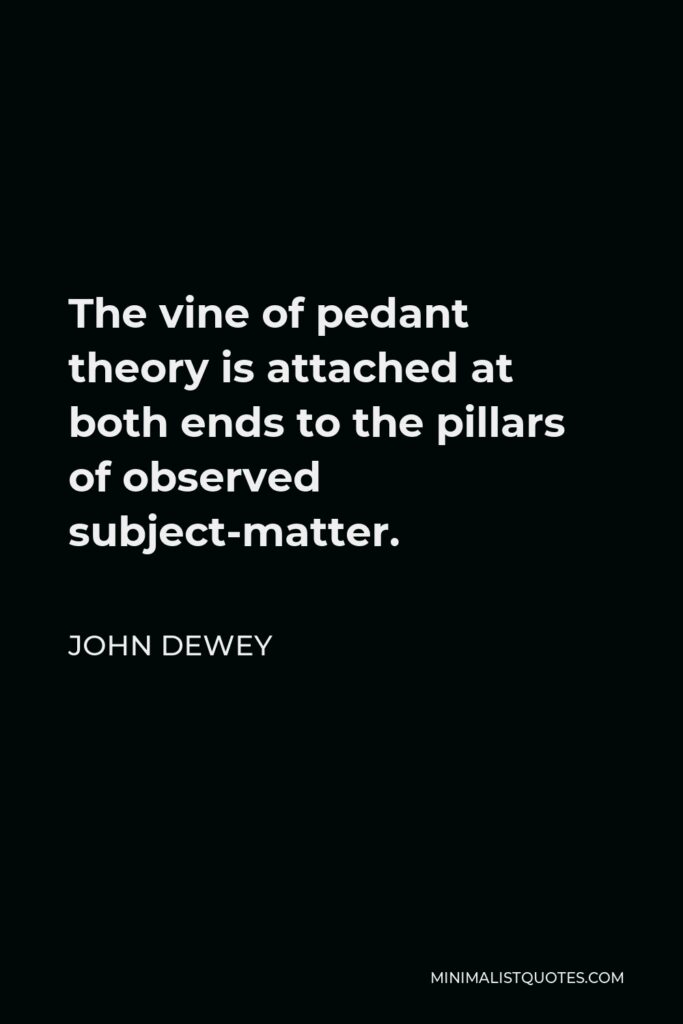

The vine of pedant theory is attached at both ends to the pillars of observed subject-matter.
JOHN DEWEY -





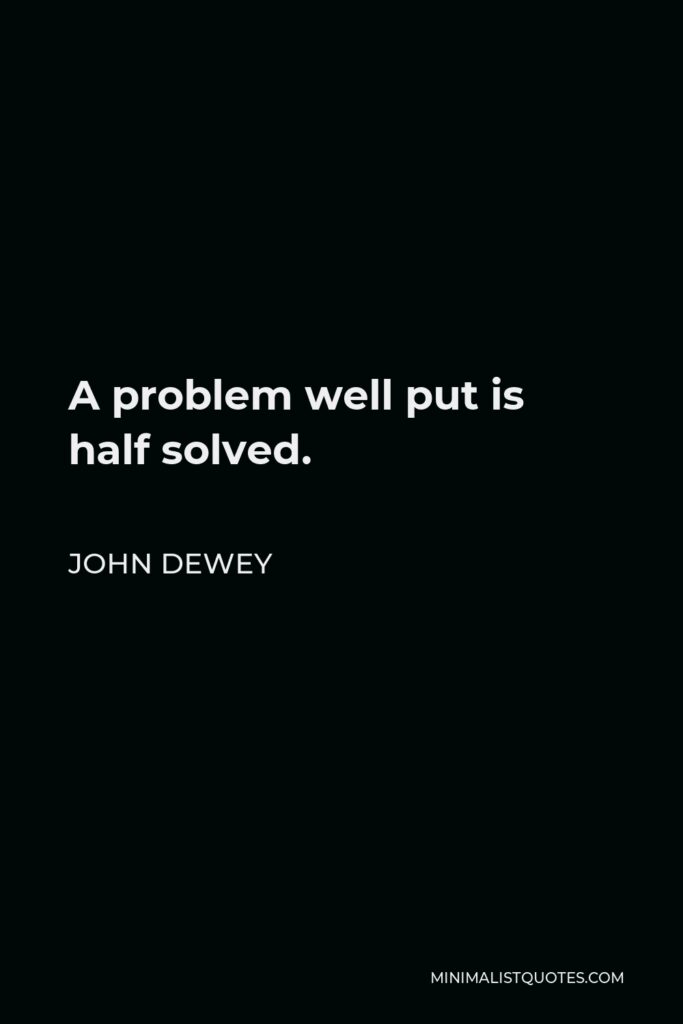

A problem well put is half solved.
JOHN DEWEY -







The local is the only universal, upon that all art is built.
JOHN DEWEY -





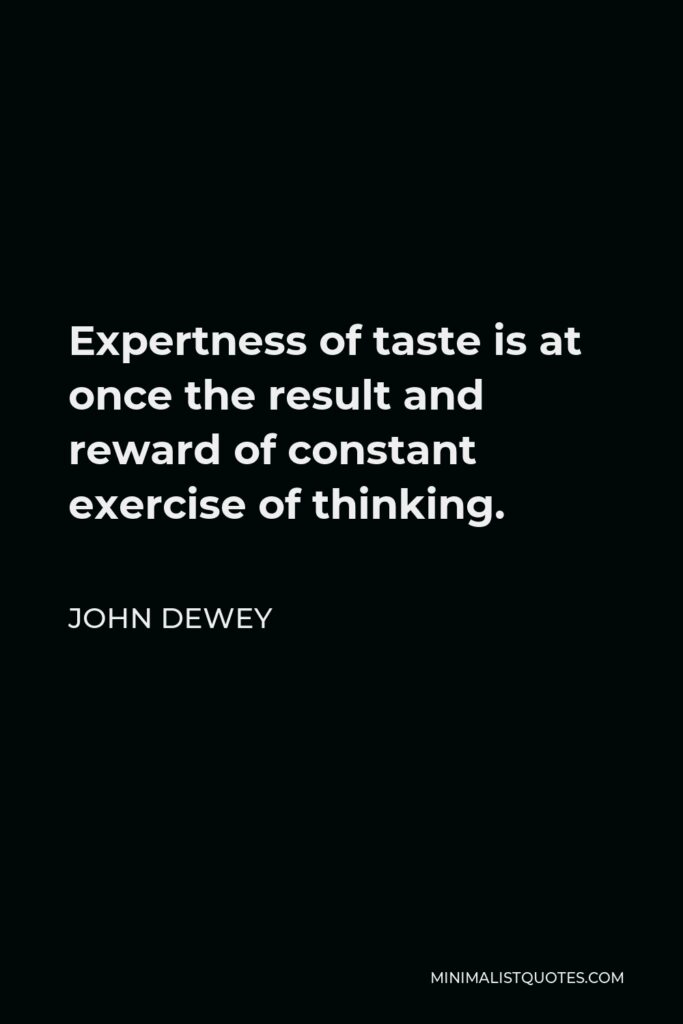

Expertness of taste is at once the result and reward of constant exercise of thinking.
JOHN DEWEY -





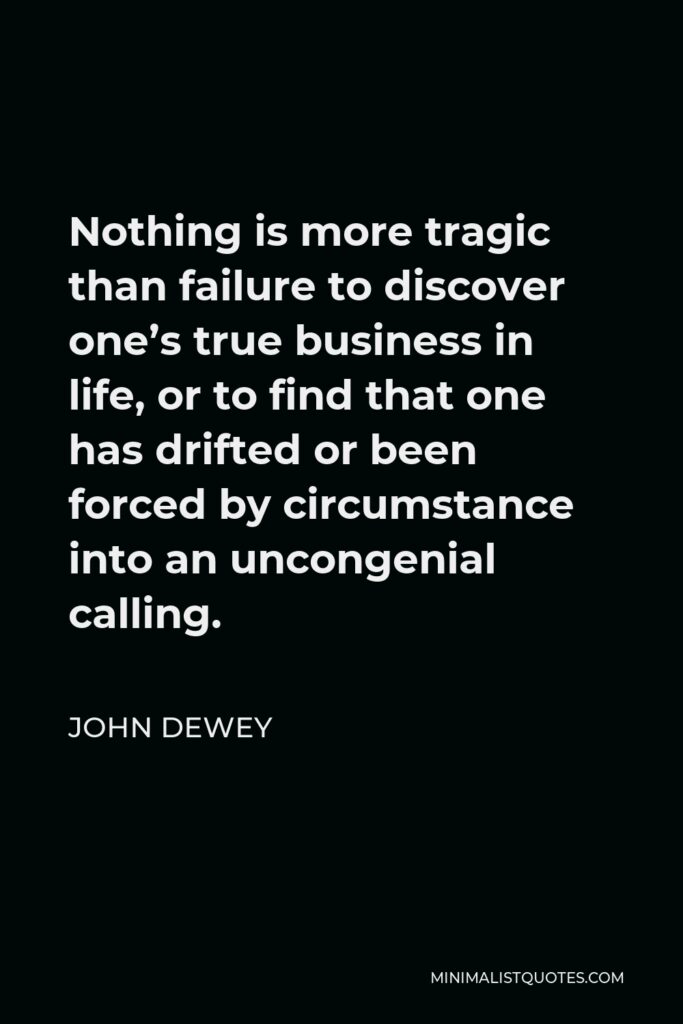

Nothing is more tragic than failure to discover one’s true business in life, or to find that one has drifted or been forced by circumstance into an uncongenial calling.
JOHN DEWEY -







The goal of education is to enable individuals to continue their education.
JOHN DEWEY -







Whole object of intellectual education is formation of logical disposition.
JOHN DEWEY -







I feel the gods are pretty dead, though I suppose I ought to know that however, to be somewhat more philosophical in the matter, if atheism means simply not being a theist, then of course I’m an atheist.
JOHN DEWEY -





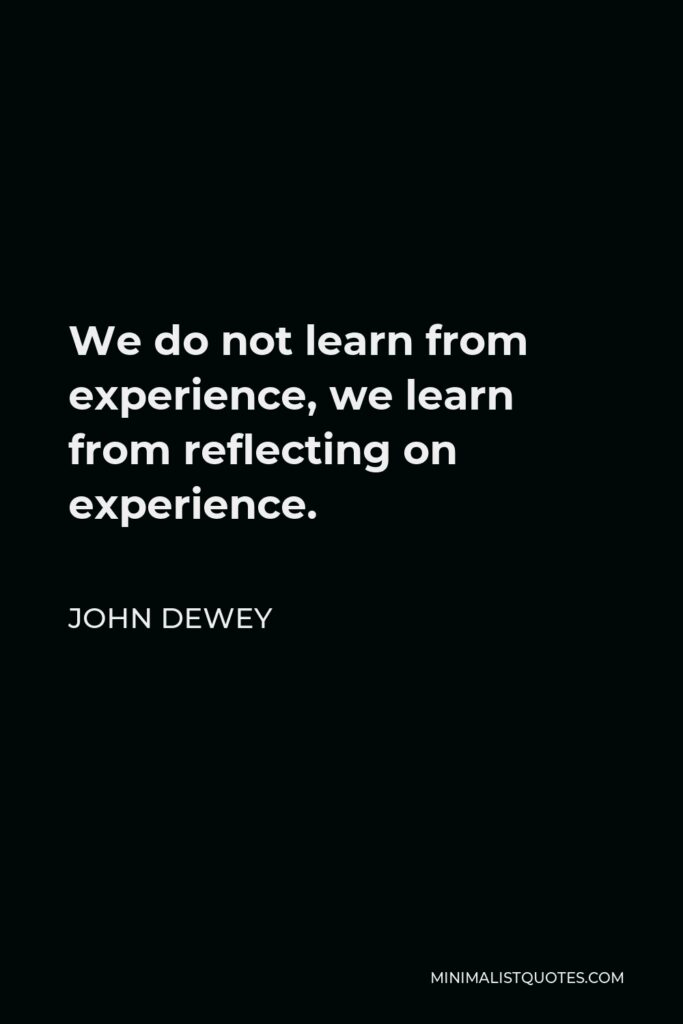

We do not learn from experience, we learn from reflecting on experience.
JOHN DEWEY -







Anyone who has begun to think, places some portion of the world in jeopardy.
JOHN DEWEY -







The deepest urge in human nature is the desire to be important.
JOHN DEWEY -





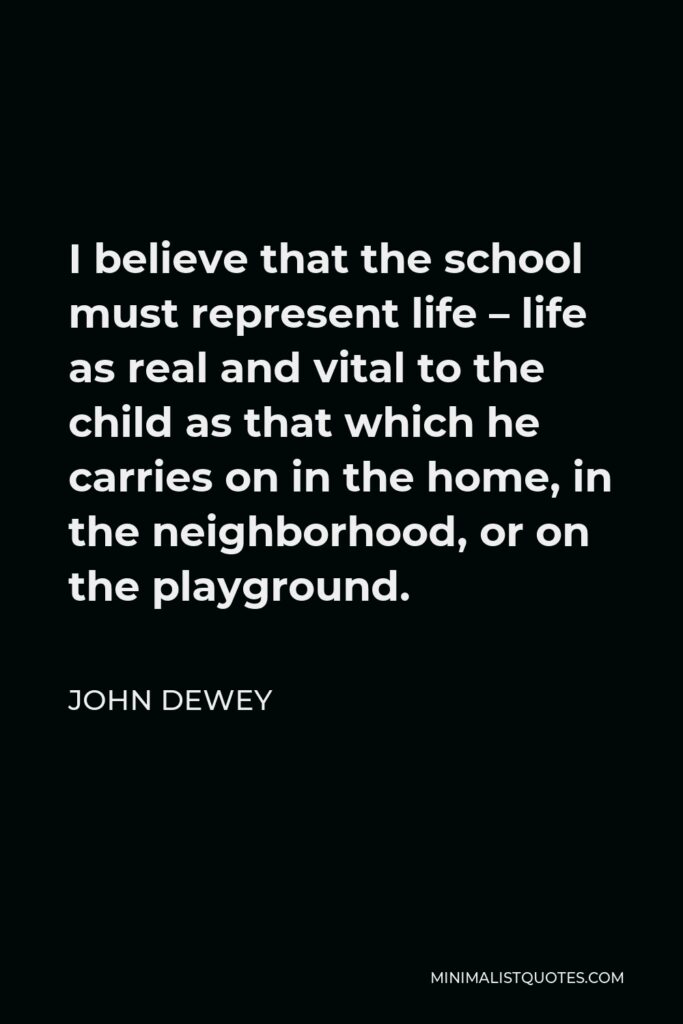

I believe that the school must represent life – life as real and vital to the child as that which he carries on in the home, in the neighborhood, or on the playground.
JOHN DEWEY
